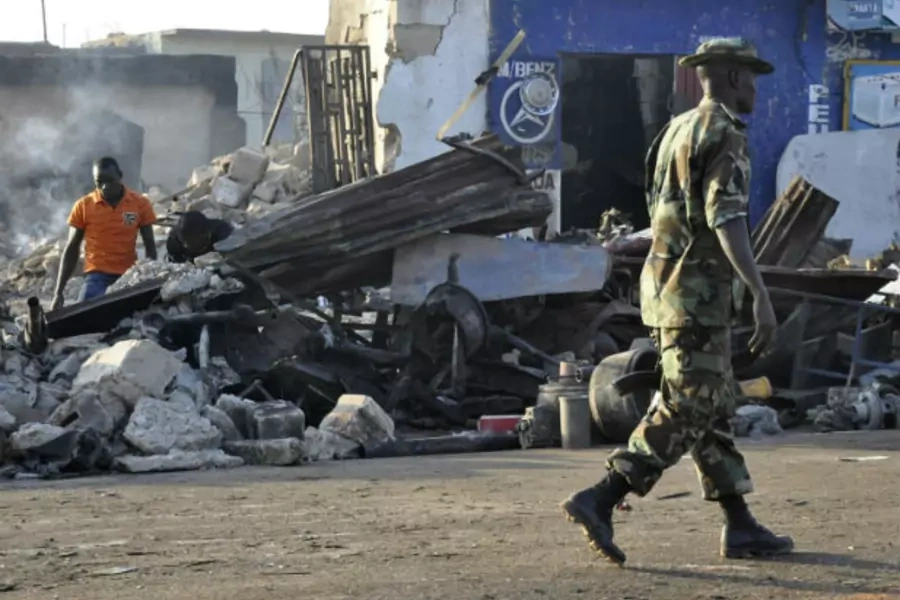More on:
Over the weekend, fighting in the northern Nigerian border town of Baga killed at least 185, according to the New York Times and Nigerian media. The magnitude of the killings leads the Times to conclude that a Rubicon of sorts has been crossed: "The assault marks a significant escalation in the long-running insurgency Nigeria faces in its predominately Muslim north, with Boko Haram extremists mounting a coordinated assault on soldiers using military-grade weaponry."
In fact, with the exception of its magnitude, much about Baga is achingly familiar. A high percentage of the victims appear to have been women, children, and the elderly, and many deaths were caused by fire—Baga is burned to the ground, according to Nigerian media. While the insurgents fired rocket-propelled grenades, soldiers sprayed machine-gun fire into civilian neighborhoods, according to residents quoted in the Nigerian media. But, the military commander claims the deaths are the responsibility of “Boko Haram,” because the insurgents fired on the soldiers from among civilians. The military, apparently, responded by burning down the town.
It remains unclear who the insurgents were. The insurrection in northern Nigeria is highly diffuse. Further, Baga is on Lake Chad, which borders Niger, and Chad, and Cameroon. Given the porosity of the borders, the insurgents could have crossed into Nigeria, and it would be relatively easy to procure relatively sophisticated weapons. Given the isolation of Baga, my working hypothesis is that the insurgents and their grievances are essentially local. But the security services’ response is likely to alienate the local people from the federal government. According to the Nigerian media, two thousand houses were destroyed as well as sixty-four motorcycles and forty automobiles. The small number of automobiles and motorcycles is an indication of Baga’s poverty. It is described as a “fishing” town. But, Lake Chad has been shrinking for decades because of desertification.
More on:
 Online Store
Online Store

